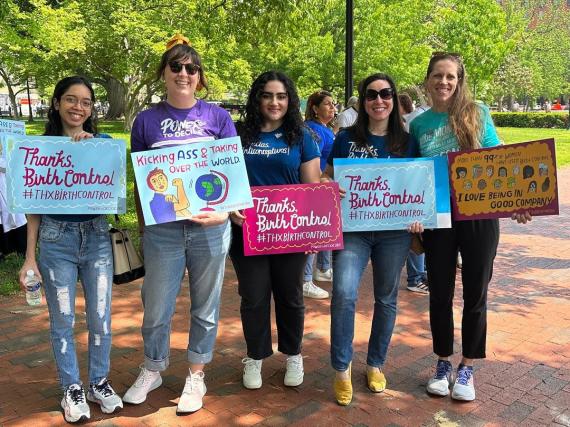Let’s Talk Pleasure
Sexual health encompasses more than whether a person has an STI, the type of birth control they use, and pregnancy and childbearing. Sexual health— a component of reproductive well-being —is part of what makes up a person’s total physical, emotional, mental, and social health. September is Sexual Health Awareness Month and a perfect time to talk to young people about all elements of sexual health, including pleasurable, safe sex and masturbation. Although discussing such intimate topics can be awkward, there are ways to set both you and your teen for success.
How to Approach the Conversation
Consider using The National Coalition for Sexual Health’s five actions steps to achieving good sexual health as an outline for an initial conversation.
- Value who you are and decide what’s right for you.
- Treat your partners well and expect them to treat you well.
- Build positive relationships.
- Get smart about your body and protect it.
- Make sexual health part of your health care routine.
Additionally, take time before you talk to gather diverse resources both to reference as you talk, but also to let your young person know that you will always be there to support them. While the exact resources you use will likely vary on your circumstances, here are four to begin.
Rather than fumble for euphemisms or talk around your meaning, do your best to stick to facts and plain talk. For example, when talking about anatomy say vulva, vagina, penis, and testicles in place of foofoo, cooch, hoo-haw, ding dong, Johnson, willy, etc. In case you need a refresher and to keep on hand while you talk here is a great guide for female and male sexual anatomy.
Talking Pleasure
Starting age-appropriate conversations about pleasure when children are young and beginning to explore their bodies can make it easier to keep talking as they get older. Author and sex educator Melissa Pintor Carnagey believes that “no act is too small” and even a short, daily sex positive conversation will give young people better information and support that will in turn encourage them to make healthy decisions as they grow.
Masturbation is a totally normal, safe, and healthy behavior so approach conversations about it without judgement or shame. While people of every age masturbate, young people especially should take time to learn what feels good for them versus what doesn’t by exploring their own bodies. Doing so is a wonderful way of improving a person’s self-image, boost confidence, and help them to understand their boundaries before another person gets involved. Plus, masturbation releases hormones that can help people sleep, alleviate stress, and ease period cramps. It may even boost people’s immune system!
Though the shifts in conversations about what constitutes sexual health have been slow, we know now that it is more than preventive medicine. Conversations about sexual health are key to preparing young people for the futures they envision for themselves. And as young people grow and mature their need to have a trusted champion they can turn to will never go away. Check out our #TalkingIsPower campaign for even more resources, start early, and talk often because you are more powerful than you think.



